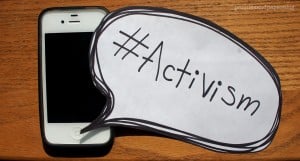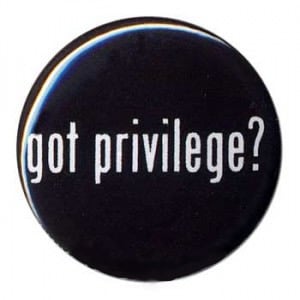
Source: Her Zimbabwe
What if Ariel of The Little Mermaid was a woman of color? What if Mulan had a girlfriend? How about if Snow White was in a wheelchair? And what if all of these storylines didn’t revolve around finding love?
A world where our favorite Disney princesses and beloved fictional characters were of different body types, abilities, races, and sexualities seems difficult to imagine. Especially if that world also means narratives that reach beyond women’s stories centering around a love interest.
But there is a place where these things exist, where the diverse media representation that we all crave is reality: fan fiction.
Although it’s often ridiculed as nerdy and those who are into it are often written off, fan fiction makes some serious progress when it comes to empowerment of marginalized people.
It allows us to call out problematic media elements of the texts we love and subvert those narratives – leaving space to reclaim the stories and characters we treasure and make them into something even better.
Now, fan fiction isn’t necessarily inherently a political act – there are plenty of entries into the genre that are problematic in many of the same ways traditional media is (or more so – Fifty Shades of Grey, anyone?).
But it does also allow for some seriously wonderful exploration of feminist ideals like equality and empowerment, as well as representation in media depictions and voices.
As adult fantasy author Lev Grossman explained in an interview for Indyweek.com, fan fiction often acts as a powerful tool that allows writers to “engage with and critique source texts, by manipulating them and breaking their rules.”
Although most people write off the genre as uncool or thoughtless worship of a given piece of media, fan fiction often does double duty in order to fill in the blanks of identity that are missing from pop culture.
“One tends to think of it as written by total fanboys and fangirls as a kind of worshipful act,” Grossman writes, “but a lot of times you’ll read these stories and it’ll be like ‘What if Star Trek had an openly gay character on the bridge?’ And of course the point is that they don’t, and they wouldn’t.”
Giving voice to marginalized groups? Exploring equality? Calling out media?
That sounds down-right feminist to me. Here are four reasons why fan fiction is a feminist pursuit:
1. It Helps Young Women Explore Identities and Create Communities
According to scholar Angela A. Thomas, fan fiction is a powerful tool for young women in particular.
Her research found that by writing and reading fan fiction, young women were able to “engage in self-reflexive critical practice about their reading, their choices, and their identities in their different forms.”
This is a huge deal in a culture that constantly ridicules and undermines young women.
When our society is telling girls who they should be and how they must act, fan fiction allows an outlet for true exploration of who they really are.
Angela Thomas’ research also found that those who participated in fan fiction were offered a sense of community many teenagers and marginalized people might not experience elsewhere.
Essentially, fan fiction can act as a safe space for those who write and read it. Often, those who participate in the community not only find like-minded characters that they can relate to, but also peers who understand them.
Many writers and readers of the genre also join forums, social media platforms, and in-person meetings and conventions that allow them to truly connect with others.
Community building and collective action are key components of feminism. They allow us to band together in order to envision and build the future we want to see for ourselves.
So when it comes to fan fiction, this means envisioning a better version of the media we love – one with real diversity and representation.
2. It Allows Us to Interrogate Texts
I’ve said it before, and I’ll say it again: Sometimes the things we love just don’t fit into our feminists practices.
Of course, there are ways to consume problematic media as a feminist, but the great thing about fan fiction is that it can address the reasons why our favorite pieces of media are lacking.
Often, we don’t stop to consider what is wrong with pop culture and mainstream media texts – but fan fiction forces us to confront and interrogate these elements head-on.
When we start to read alternate version of the texts we love with dramatically different elements to them – be it the inclusion of different sexualities, races, or other identities or even alternate storylines – we have to confront that these elements were missing in the first place.
It makes us consider what a world would be like where stories aren’t centered around the white male experience, where the male gaze isn’t the lens by which most media is seen.
Fan fiction forces us to confront why these elements are the norm and what a world where marginalized people are re-centered in might be like.
3. It Centers Diversity
Caroline Starks said it best while writing about fan fiction for The Mary Sue — the genre does more than tell a story: It allows us to explore worlds.
Even more important, these pieces of writing often let us explore the worlds of those whose stories are more often than not left out of the narrative.
According to the Women’s Media Center’s latest report on women in the media, women are vastly underrepresented in the media: Only about 28% of speaking roles in the top 100 films went to women in 2014.
And the roles were even fewer and farther between for women of color: “Of the women who who did get speaking roles in movies, 34.6% were black, 33.9% were [Latina], and 28.8% were white.”
In a world where hardly anything passes the Bechdel Test – or its expanded counterparts that take other factors such as race or sexuality into consideration – we desperately need these kinds of outlets for representations of race, gender, sexuality, ability, and class.
That means that, for popular books series like Harry Potter, we get to imagine what life for Hermione Granger is like outside of the series’ hero.
We are able to separate one of our favorite character’s from the man her story is otherwise centered around and explore what her life is like through her own eyes.
Or maybe we take it even farther from the text and explore what life would have been like if Hermione was, say, a black woman.
This is a common writing device used in fan fiction typically referred to as racebending, or changing the race of a beloved character.
Once again, this is a powerful tool for interrogating what is missing from a text and subverting our media to be more inclusive and offer greater visibility for various identities.
4. It Provides a Space for Perspectives That Are Ignored by the Media
Not only is there a stunning lack of diversity in the kinds of people represented in our media, there is also a stunning lack of diversity in those who created that media.
In fact, 70% of film writers and critics are men, and “they tend to write about films by male directors featuring male protagonists.”
It doesn’t get much better in literature. The annual VIDA count, which measures gender inequality in literature, consistently finds that male authors are significantly more likely to be reviewed and featured in major publications than women are.
But fan fiction can help address that.
Although we don’t have exact numbers, most research has found that the majority of fan fiction writers are women. And this is wonderful in a world where women’s perspectives, especially women of color, are typically ignored.
Fan fiction is a genre that literally anybody can create and distribute. Within fan fiction, there are infinite opportunities for marginalized people to express themselves, share their own experiences, and create a sense of community.
***
We need more spaces for marginalized people to express themselves. Although pop culture and mainstream media have yet to feature the diversity and representation we crave, fan fiction can help to fill in those gaps.
And that is nothing short of feminist.
[do_widget id=”text-101″]
Ally Boguhn is a Contributing Writer for Everyday Feminism and a feminist activist and media researcher living and working in Washington, DC. Ally is the founder and editor of Because I am a Woman, a blog devoted to intersectional feminism and reproductive justice. You can follow Ally on Twitter @AllyBoguhn. Read her articles.
Search our 3000+ articles!
Read our articles about:
Our online racial justice training
Used by hundreds of universities, non-profits, and businesses.
Click to learn more




















